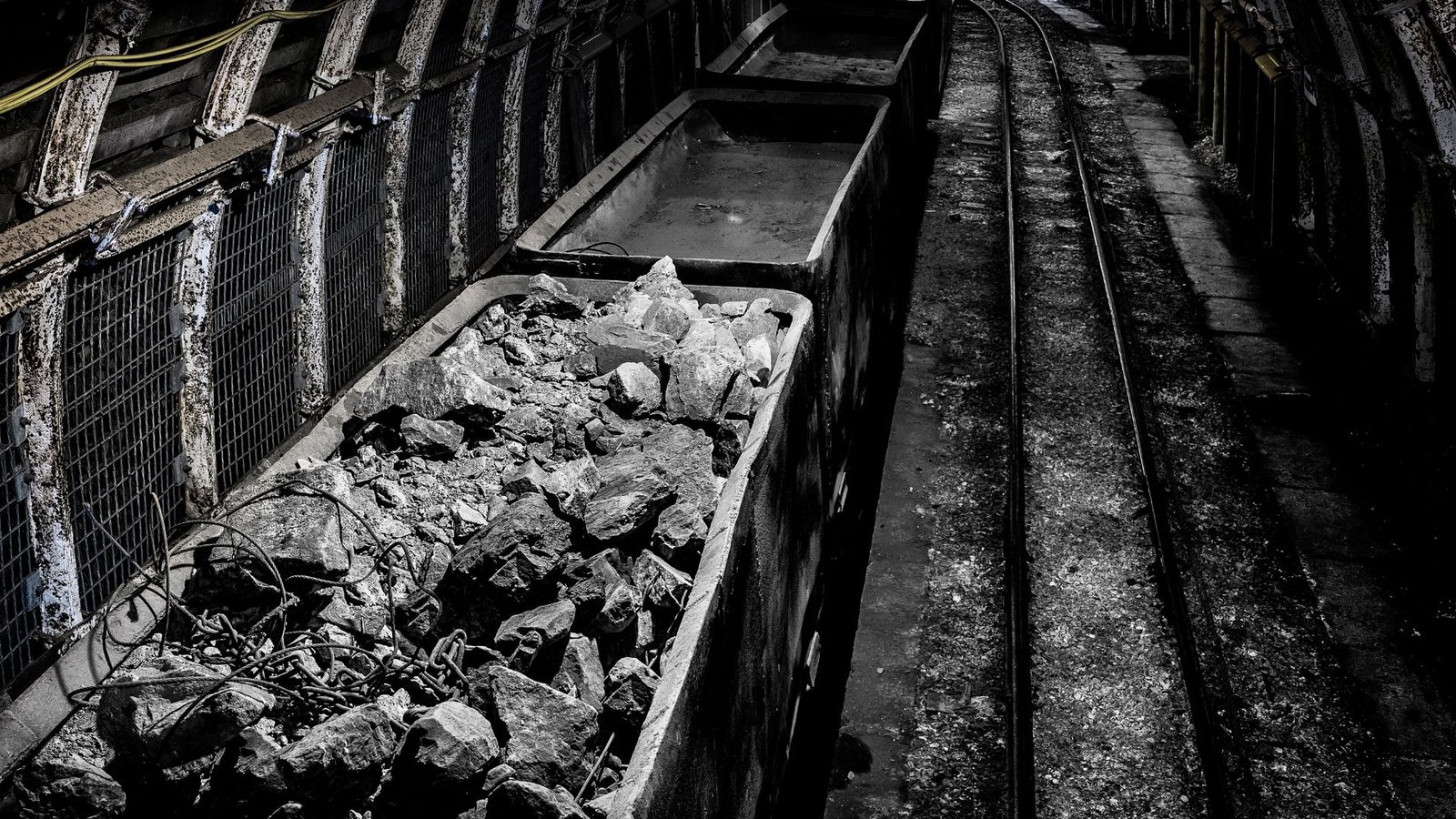On this page you will read detailed information about Coal Mines Act 1952.
As an expert in the field of mining legislation in India, you understand the importance of the Coal Mines Act of 1952. This foundational law established key regulations and oversight for the coal mining industry, which remains a vital sector in the nation’s economy. In your article, you will provide readers with a comprehensive overview of this important law. You will explain the historical context that led to its passage, analyze key provisions for mine safety and miner welfare, and assess the impact and legacy of the act. Your insights on this seminal mining legislation will educate readers on a significant chapter of India’s legal and industrial history. This article serves as a valuable resource on the Coal Mines Act of 1952 and its role in shaping India’s mining sector.
History and Purpose of the Coal Mines Act 1952
The Coal Mines Act, 1952 was introduced to regulate the working conditions in coal mines and ensure the health and safety of coal mine workers. Prior to the Act, there were no provisions regarding the welfare and safety of mine workers. The Act aimed to protect the lives of workers from the inherent dangers of coal mining operations.
Improving Working Conditions
The Act laid down provisions relating to employment of workers, payment of wages, health, safety, welfare and working hours of workers. It prohibited the employment of children below 18 years of age in a mine. The Act also fixed the maximum limit of working hours for workers, ensured payment of adequate wages, and provided basic housing amenities, medical facilities, and recreation centers for workers. These measures significantly improved the working conditions of coal mine workers.
Safety Regulations
The Act also put in place several regulations to enhance the safety of workers. It mandated proper ventilation and lighting in mines to provide oxygen and visibility. The use of protective equipment like helmets, goggles and safety boots was made compulsory. Regulations regarding the use of explosives, construction of shafts and inclines were framed to prevent accidents like explosions, landslides, flooding, etc. Periodic inspections and certifications were introduced to ensure compliance with the safety standards. These safety regulations helped in reducing the fatality rate in coal mines.
Establishing Statutory Bodies
The Act led to the constitution of several authorities to implement its provisions. The Directorate General of Mines Safety and the Coal Mines Safety Committees were formed to inspect mines, investigate accidents and recommend safety measures. The Coal Board was established to regulate the development of coal mining in India. These statutory bodies played an important role in improving working conditions, maintaining safety standards and boosting coal production in India.
In summary, the Coal Mines Act, 1952 was a landmark legislation that regulated the coal mining sector in India. It improved the working conditions of coal mine workers, enhanced the safety of mines and boosted coal production in the country. The provisions and regulations of this Act transformed the coal mining industry and ensured the welfare of workers.
In the previous post, we had shared information about Analyzing the Air Prevention and Control of Pollution Act 1981, so read that post also.
Key Provisions of the Act Regarding Coal Mine Safety
Health and Safety of Workers
The Coal Mines Act established several provisions aimed at ensuring the health, safety, and welfare of mine workers. It mandated the appointment of inspectors to inspect coal mines and ensured the formation of safety committees at each mine to look into accidents and suggest remedial measures. The Act also required adequate ventilation, dust prevention, use of safety lamps, and periodical medical examination of workers.
Hours of Work
The Act regulated the hours of work for people employed in coal mines. It fixed the maximum limit of working hours for workers to 7.5 hours per day and 45 hours per week. It also mandated the payment of overtime wages for any work done beyond the prescribed hours. These provisions aimed to provide humane working conditions for coal mine workers.
Welfare Measures
The Act made provisions for basic amenities and facilities for the welfare of workers like canteens, rest rooms, conservancy, ambulances, and housing. Mine owners were required to provide and maintain necessary facilities for workers like drinking water, latrines, and urinals. These welfare measures aimed to provide essential facilities that contribute to the health, efficiency, safety, and improved quality of life of coal mine workers.
Penalties
To ensure compliance, the Act laid down penalties for contravention of its provisions by coal mine owners, agents, and managers. Monetary fines and imprisonment were prescribed for offences like failure to appoint safety officers, improper ventilation, inadequate medical facilities, violation of hours of work, and non-payment of wages. The penalties aimed to deter mine owners from compromising the health and safety provisions laid down for the welfare of workers.
In summary, the Coal Mines Act established several provisions regulating the conditions of employment in coal mines and ensuring the safety, health, and welfare of coal mine workers. It prescribed minimum standards relating to hours of work, health and safety measures, and essential welfare facilities for coal mine workers. The Act also laid down penalties to enforce compliance with its statutory provisions.
Regulation of Hours and Conditions for Coal Mine Workers
Working Hours
The Coal Mines Act established limits on the maximum number of hours coal miners were permitted to work. Miners could not work more than 54 hours a week or 9 hours a day, with limited exceptions. The Chief Inspector of Mines had the authority to exempt mines from these limits in case of emergency. The Act aimed to prevent the exploitation of workers through excessively long working hours in dangerous conditions.
Health and Safety
The Act also set standards for health, safety, and welfare of coal miners. It required adequate ventilation and air supply in mines to reduce risks like suffocation or explosion. The Act mandated other protections like provision of protective equipment, regular inspections of machinery and equipment, employment of qualified managers and engineers to oversee operations, and establishment of rescue stations for emergency response.
Leave and Welfare
The law provided basic welfare benefits for coal miners like paid annual leave, sick leave, and holidays. It required mine operators to provide housing, medical facilities, and canteens for workers. These provisions aimed to improve the poor living and working conditions that were common for coal miners at the time.
Certification and Training
The Act established a certification process for coal mine managers, engineers, and other technical personnel to ensure they had adequate knowledge and experience. It also required provision of health and safety training for all coal miners. These measures were intended to reduce accidents and improve professionalism in the coal mining industry.
In summary, the Coal Mines Act established minimum standards for working hours, health, safety, welfare, and training of coal mine workers. Though limited in scope, it took an important first step toward improving labor rights and protections in a hazardous industry. Subsequent laws and amendments have further strengthened the regulation of coal mines in India.
Role of Inspectors and Certifications Under the Act
Inspectors
The Coal Mines Act established the cadre of inspectors to monitor compliance with the Act. Inspectors are vested with powers to enter any coal mine and examine its workings, as well as inspect any book or document related to the mine. They may conduct inquiries into accidents, take measurements and samples, and prohibit mining operations that threaten the health and safety of workers.
Inspectors are required to submit annual reports on their inspections to the central government. These reports provide an overview of working conditions in the coal mines and highlight any violations of the Act. The reports are then laid before both Houses of Parliament, making them an important instrument for legislative oversight of mining activities.
Certification of Competency
To ensure the efficient and safe operation of coal mines, the Act mandates that only properly qualified and certified persons may be appointed to supervise or manage mines. The central government prescribes qualifications and conducts examinations for various competency certificates, including those for managers, overseers, sirdars, and shot firers. Candidates who pass these examinations are granted the relevant competency certificate, which must be renewed periodically.
Holders of competency certificates are responsible for compliance with all provisions of the Coal Mines Act and the regulations framed thereunder in the mines under their charge. The withdrawal or suspension of a competency certificate has serious consequences, as it renders the holder ineligible to be employed in that capacity at any mine. This system helps ensure that those in positions of responsibility have the necessary knowledge and skills to discharge their duties effectively.
The roles of inspectors and the certification of mine officials are two of the mechanisms by which the Coal Mines Act enforces minimum standards of safety, health, and welfare in the coal mines. By mandating qualifications and empowering inspectors to monitor working conditions, the Act aims to prevent the exploitation and negligence that characterized mining operations prior to nationalization.
Penalties for Violations of the Coal Mines Act
The Coal Mines Act, 1952 outlines several penalties for violations of the Act’s provisions and rules to ensure compliance.
Failure to Comply with Provisions
Failure to comply with the provisions laid out in the Act can result in imprisonment up to 3 months and/or a fine up to Rs. 500. The government may also cancel or suspend any license granted under the Act.
Obstructing an Inspector
Obstructing an Inspector from performing his duties is punishable by imprisonment up to 3 months and/or a fine up to Rs. 500. This includes refusing access to documents and records, as well as any part of the mine.
Failure to Provide Facilities to Inspectors
Owners, agents and managers are required to provide Inspectors facilities to make any entry, inspection, examination or inquiry authorized under the Act. Failure to do so can result in imprisonment up to 3 months and/or a fine up to Rs. 500.
Making False Statements
Any person who willfully makes a false statement or representation to an Inspector is subject to imprisonment up to 3 months and/or a fine up to Rs. 500.
Failure to Comply with Summons
Failure to comply with summons issued by an Inspector, without sufficient cause, can result in imprisonment up to 3 months and/or a fine up to Rs. 500. This includes failing to attend and give evidence, as well as failure to produce documents as required by the summons.
The penalties outlined in the Coal Mines Act aim to compel compliance through legal consequences and disciplinary action. The severity of penalties depends on the nature of the offense, with the most stringent punishments for violations that endanger health, safety and welfare. Compliance helps ensure safe working conditions and fair practices across India’s coal mining industry.
Amendments Over the Years to Strengthen the Act
The Coal Mines Act, 1952 has undergone several amendments since its enactment to improve the safety, health and welfare of workers employed in coal mines. In 1959, the Act was amended to provide for appointment of medical officers and sanitary inspectors in every mine. This ensured that health and hygiene standards were maintained as per the Factories Act, 1948.
In 1972, the Act was amended to increase the penalties and fines for contraventions to align with the Mines Act, 1952. Provisions related to welfare and health of workers were also strengthened. For example, canteens, shelters, first-aid facilities, and other basic amenities were made mandatory in every mine.
Further amendments in 1983 mandated mine owners to frame standing orders, in agreement with workers, to regulate the conditions of employment. Owners were also required to provide amenities like housing, medical, and educational facilities for families of workers.
The amendment of 2000 was a milestone and aimed to align the Coal Mines Act with international standards. It included provisions related to the health, safety and welfare of contract workers, notice of accidents, right of workers to report unsafe conditions, and constitution of safety committees. Stringent penalties and prosecution provisions were put in place for violations.
In 2020, the Act was last amended to allow commercial coal mining by private entities to boost domestic coal production. The amendment opened up the coal sector to competition, private investment and technologies. However, adequate safeguards have been put in place to protect the interests of workers. For example, mine owners are required to spend a portion of their profits on activities related to health, welfare and socio-economic development of both workers and their families.
Overall, the amendments to the Coal Mines Act, 1952 have strengthened the safety, health and welfare provisions for workers employed in coal mines. The regular updates have ensured that the Act is relevant and aligned to the present needs of the coal mining sector in India.
Implementation Challenges and Criticisms of the Legislation
The Coal Mines Act of 1952 was a pioneering legislation that aimed to regulate the working conditions in coal mines and provide social security to mine workers. However, the Act faced several challenges in its implementation and has been criticized on various grounds.
The Act mandated the appointment of Inspectors to oversee safety standards and working conditions in mines. However, the number of Inspectors has always been inadequate relative to the large number of mines. This has hampered effective monitoring and enforcement of the Act.
The Act also required mine owners to implement measures for the health, safety, and welfare of workers. However, mine owners have frequently failed to comply with these provisions citing financial burdens. For instance, many mine owners did not provide amenities like drinking water, canteens, medical facilities, and housing as required under the Act.
The Act sought to curb child labor in mines but did not completely prohibit it. Children between the ages of 15 to 18 were still allowed to work in mines as apprentices. This provision was heavily criticized as it encouraged child labor.
The compensation provided in case of accidents or occupational diseases was very low and did not provide fair recompense to the workers or their families. The limits on working hours were also considered insufficient. Workers had to work for up to 10 hours a day in difficult conditions.
The Act also did not cover all types of mines and excluded small mines employing less than 100 workers. This denied social security benefits and proper regulation to a large number of mine workers.
To summarize, while the Coal Mines Act of 1952 was a well-intentioned legislation, it suffered from several lacunae in its implementation and coverage. It failed to achieve comprehensive regulation and welfare of mine workers as envisaged. Significant amendments were required to address these critical gaps and provide fair working conditions and benefits to India’s mine workers.
Recent Developments and Proposed Changes to the Act
The Coal Mines Act, 1952 has undergone several amendments since its enactment to improve the legislation and align it with current requirements. Some of the major changes introduced in the last decade include:
The Ministry of Coal proposed certain amendments to the Act in 2015 to allow commercial mining by private companies, enable the transfer of mining leases, and re-allocate captive coal blocks. The modifications also sought to establish the National Coal Mining Corporation to promote coal mining in India.
In 2020, the Ministry of Coal introduced reforms permitting private companies to carry out commercial coal mining to increase domestic coal production and reduce import dependence. The changes are expected to introduce competition, transparency and private sector participation in the coal industry. Operators will have flexibility in coal pricing, and there will be incentive-based revenue sharing with the government.
Proposed amendments to the Act aim to improve productivity, increase investment, generate employment, and boost the economy. Allowing commercial mining is projected to attract significant foreign direct investment in the sector. The revised provisions can also augment the production and supply of coal to meet energy requirements, as India moves towards its goal of 24×7 affordable and reliable power for all.
Additional modifications to the legislation have been suggested to simplify the process for obtaining permits, enable the rational utilization of coal resources, rehabilitate project-affected people, safeguard the environment and ensure the safety of workers. The proposed changes to the Coal Mines Act, 1952 seek to revamp the sector through progressive reforms while upholding the welfare of all stakeholders. Overall, the amendments are poised to pave the way for a competitive, economically vibrant and sustainable coal industry.
Coal Mines Act FAQs: Your Top Questions Answered
The Coal Mines Act of 1952 is a comprehensive bill that regulates the Indian coal mining industry. If you own or operate a coal mine in India, it is important to understand your legal obligations under this Act. Here are some of the most frequently asked questions regarding the Coal Mines Act.
The Act establishes several provisions to ensure the health, safety, and welfare of mine workers. This includes restrictions on working hours, requirements for proper ventilation and dust control, use of protective equipment, precautions against explosions and fires, and inspections to check compliance. The Act also requires that all accidents be properly reported and investigated.
The Act regulates payment of wages, leave, holidays, hours of work, and termination of service for mine workers. It prohibits the employment of minors and women in underground mines except in specified circumstances. The Act also provides grievance redressal mechanisms for workers.
The Act aims to prevent pollution from mining activities. It gives the central government powers to regulate the use of certain equipment in mines, prohibit certain practices likely to cause pollution, and take measures for proper disposal of waste. Mine owners are required to plant trees, control dust emissions, and restore the land after mining operations cease.
The Act has provisions for penalties including fines and imprisonment for contravening its provisions. Penalties vary based on the nature of the offense, and whether it is a first time or repeat offense. The Act also gives inspectors the power to issue improvement notices to mine owners. Failure to comply with such notices can lead to prosecution in court.
In summary, the Coal Mines Act aims to ensure the health, safety and welfare of mine workers, protect the environment from adverse impacts of mining, and regulate the terms of employment in coal mines. Familiarizing yourself with its provisions is important for responsible and compliant mining operations.
Conclusion
As we have seen, The Coal Mines Act of 1952 was a pivotal piece of legislation that helped shape India’s mining industry in the decades after independence. While not without flaws, the act established critical regulations and oversight that improved miner safety and working conditions. The legacy of The Coal Mines Act reminds us that legislation can be an effective tool to address injustices, even if it takes time for cultural change to catch up. As India continues to develop economically, it will be important to revisit this law and others to ensure they evolve appropriately. Though daunting, improving laws incrementally to support both ethical businesses and human rights is essential work for any maturing democracy.
Disclaimer
The information and services on this website are not intended to and shall not be used as legal advice. You should consult a Legal Professional for any legal or solicited advice. While we have good faith and our own independent research to every information listed on the website and do our best to ensure that the data provided is accurate. However, we do not guarantee the information provided is accurate and make no representation or warranty of any kind, express or implied, regarding the accuracy, adequacy, validity, reliability, availability, or completeness of any information on the Site. UNDER NO CIRCUMSTANCES SHALL WE HAVE ANY LIABILITY TO YOU FOR ANY LOSS OR DAMAGE OF ANY KIND INCURRED AS A RESULT OR RELIANCE ON ANY INFORMATION PROVIDED ON THE SITE. YOUR USE OF THE SITE AND YOUR RELIANCE ON ANY INFORMATION ON THE SITE IS SOLELY AT YOUR OWN RISK. Comments on this website are the sole responsibility of their writers so the accuracy, completeness, veracity, honesty, factuality and politeness of comments are not guaranteed.
So friends, today we talked about Coal Mines Act 1952, hope you liked our post.
If you liked the information about Coal Mines Act 1952, then definitely share this article with your friends.
Knowing about laws can make you feel super smart ! If you find value in the content you may consider joining our not for profit Legal Community ! You can ask unlimited questions on WhatsApp and get answers. You can DM or send your name & number to 8208309918 on WhatsApp








